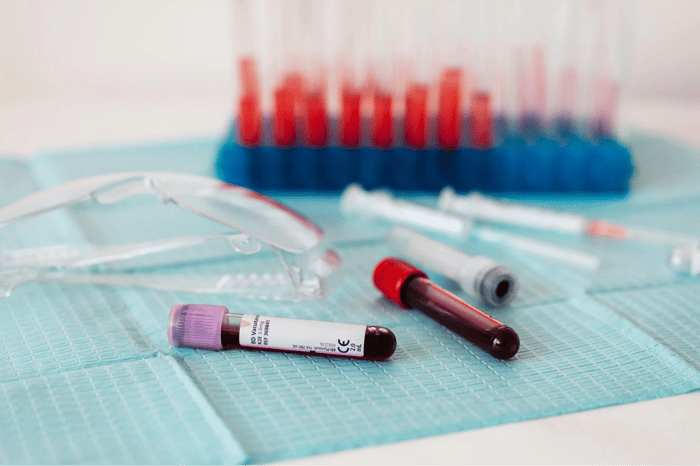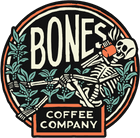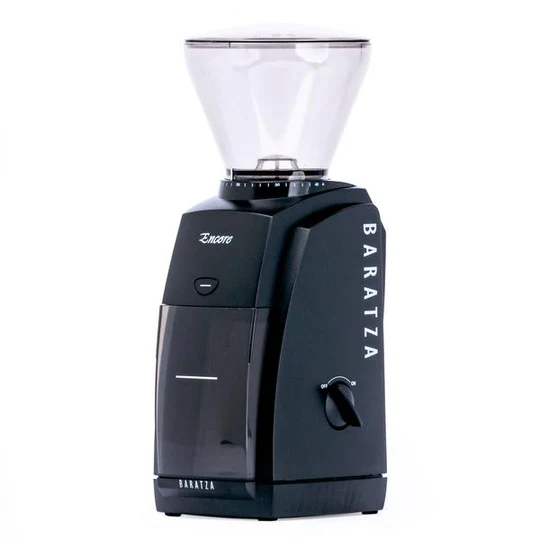For many people, the day doesn’t truly begin until they’ve had their morning cup of coffee. It’s a comforting ritual that provides both physical and mental fuel. However, when you’re scheduled for a blood test—especially one that requires fasting—this daily habit might need to be put on hold.
So, the big question is: Can you drink coffee before a blood test? The short answer is it depends on the certain blood test you’re taking and the specific instructions from your healthcare provider. While some tests may allow black coffee, others can be significantly affected by even a small amount of caffeine.
Let’s take a closer look at how coffee can impact your test results, why fasting is essential, and what to do if you accidentally sip before your appointment.
Why Fasting Is Essential for Blood Tests
Fasting before a certain blood test means abstaining from food and certain drinks—usually for a period of 8 to 12 hours—to ensure accurate and consistent results. During this time, your body returns to a baseline state that’s free from the influence of recent food or beverage intake.
Key Reasons for Fasting
- Prevents skewed results: Many tests, particularly those measuring glucose, cholesterol, or liver enzymes, can be influenced by recent consumption of food or drink.
- Ensures accurate markers: Your doctor relies on these numbers to assess your health. Incorrect values could result in misdiagnosis or unnecessary treatments.
- Supports appropriate treatment decisions: Reliable lab data leads to more effective care plans, which is especially important for managing chronic conditions.
Some tests might only require a short fasting window, while others demand a full 12 hours. Confirming the specifics with your doctor or lab technician is always best.
General Fasting Guidelines Before Blood Tests
To make sure your fasting for blood work goes smoothly, here’s what you should and shouldn’t do during the fasting period:
What You Can Do
- Drink water: Plain water is not only allowed—it’s encouraged. Hydration improves blood flow, making it easier for the technician to draw your blood.
- Take prescribed medications: Unless instructed otherwise, take your usual medications with water.
- Communicate with your provider: If you have conditions like diabetes or hypoglycemia, fasting may need to be adjusted. Always inform your healthcare team ahead of time.
What to Avoid:
- Food and most beverages: That includes coffee, tea, milk, juice, alcohol, and flavored water.
- Chewing gum or smoking: These activities can stimulate digestion and influence blood sugar levels.
- Heavy exercise: Strenuous activity before a test may temporarily alter enzyme and blood glucose tests.
Can Coffee Impact Blood Test Results?
Yes—coffee, even without cream or sugar, can interfere with the accuracy of certain blood tests. This is largely due to its caffeine content and bioactive compounds, which can affect your metabolism, hormones, and cardiovascular system. Even minimal intake can lead to misleading routine biochemical test results, particularly those involving blood sugar, lipid levels, or liver function.
How Caffeine Affects Blood Glucose
Caffeine triggers the release of adrenaline, which in turn signals the liver to release glucose into the bloodstream. This can disrupt blood test results for:
- Fasting glucose tests
- Oral glucose tolerance tests
- HbA1c tests (which measure average blood sugar levels over 2–3 months)
The effect varies depending on individual tolerance. People who regularly consume caffeine may show fewer fluctuations, while caffeine-sensitive individuals could see more dramatic changes.
Healthcare Tip: Even if you're a regular coffee drinker, consider reducing your intake a day or two before the test to minimize any potential impact. If you're unsure, always inform your healthcare provider about your coffee consumption habits for tailored advice. |
Coffee and Cholesterol Tests
Some types of coffee—particularly unfiltered varieties like French press or Turkish coffee—contain natural oils called diterpenes, specifically cafestol and kahweol. These substances have been shown to elevate LDL (bad) cholesterol levels when consumed regularly.
Preparation Matters
- Filtered coffee: Using paper filters (like with a drip machine) can significantly reduce diterpene levels, making the coffee less likely to impact cholesterol readings.
- Unfiltered coffee: Can contribute to higher cholesterol over time. For fasting lipid panels, it’s best to avoid all types of coffee beforehand to eliminate the risk of inaccurate readings.
Is Black Coffee Allowed During Fasting?
Some healthcare providers might say that plain black coffee is acceptable before a fasting blood test, especially if the test is less sensitive to caffeine or if patients find it difficult to fast without it.
However, there are still associated risks. Caffeine is a stimulant and may temporarily raise heart rate and blood pressure. Additionally, black coffee can alter fat metabolism, as some studies suggest it affects lipid levels in sensitive individuals.
Drinking coffee on an empty stomach may also trigger acid reflux or cause digestive discomfort. If you’re unsure, it’s best to play it safe. Even though black coffee contains no calories, its physiological effects could still influence your test results.
Can You Substitute Tea or Other Beverages?
If skipping your morning beverage seems unbearable, you might wonder if tea or other drinks are allowed. Here's how common alternatives compare:
| Beverage | Average Caffeine (8 oz) | Fasting Recommendation |
| Coffee | 95 mg | Avoid unless permitted |
| Black Tea | 40-90 mg | Avoid |
| Green Tea | 30-50 mg | Avoid |
| Herbal Tea | 0 mg | Consult your provider |
| Juice | High-sugar content | Avoid |
| Flavored Water | Variable (often sweetened) | Avoid |
| Plain Water | 0 mg | Encouraged |
Even herbal teas may contain compounds that affect digestion or blood markers. When in doubt, stick with plain water until after your test.
Which Blood Tests Require Strict Fasting?

Not all blood tests require fasting, but several common ones do. Here’s a breakdown:
Tests That Typically Require Fasting
- Fasting Blood Glucose
- Oral Glucose Tolerance Test
- Lipid Panel (Cholesterol Test)
- Basic Metabolic Panel (BMP)
- Comprehensive Metabolic Panel (CMP)
- Iron Studies (Ferritin, TIBC, Serum Iron)
- Vitamin B12 or Folate Tests (sometimes)
Fasting duration may range from 8 to 12 hours, depending on the test.
Tests That May Not Require Fasting:
- Thyroid Panel (TSH, T3, T4)
- Complete Blood Count (CBC)
- Electrolyte Panel
- Liver Function Tests (check with your provider)
When scheduling your appointment, confirm the instructions specific to your test. Don’t rely on general rules—clarity saves time and reduces the chance of having to reschedule.
What If You Accidentally Drink Coffee?
Mistakes happen, so don’t panic—but it’s important to let your healthcare provider know right away. Be honest and specific about what kind of coffee you drank, whether it was black or had cream and sugar, and how long ago you consumed it.
With this information, your provider can decide whether the test can still go ahead, whether the results need to be interpreted differently, or if the test should be rescheduled.
Should You Reschedule Your Blood Test?
Not all blood tests rely on strict fasting requirements. However, if the test relies on accurate fasting values (e.g., glucose, lipid panel), it’s often better to reschedule for accurate results. Proceeding with the test after consuming coffee could lead to:
- Misleading results
- Unnecessary follow-ups or treatment
- Wasted time and resources
In urgent cases, a provider might move forward while documenting the coffee intake. But when possible, accuracy should take priority.
Why This Matters: Accurate blood test results are essential for proper diagnosis and treatment. Fasting requirements are in place to ensure that external factors, like coffee consumption, don’t interfere with the readings. |
Final Verdict on Drinking Coffee Before a Blood Test
In general, the answer is no—you should avoid drinking coffee before a fasting blood test unless your healthcare provider gives you explicit permission. Even black coffee, which might seem harmless, can still raise glucose levels, skew cholesterol readings, and affect cardiovascular markers like heart rate or blood pressure.
To play it safe, stick with plain water during your fasting window, follow your lab or provider’s instructions precisely, and ask questions if you’re unsure about what’s allowed.
Enjoying Coffee After Your Blood Test
Once your blood is drawn and the test is done, reward yourself with that first glorious sip of coffee. Whether you prefer it bold, sweet, or flavored, that cup will taste even better knowing you followed the rules and gave your doctor accurate data to work with.
If you’re looking for something extra special, try fun flavors from Bones Coffee Company, like Maple Bacon, S'morey Time, or Bananas Foster. Their small-batch roasts are bold, creative, and perfect for making your post-test coffee break truly memorable.
After all that waiting, you’ve earned it—so go ahead and sip, savor, and smile.






